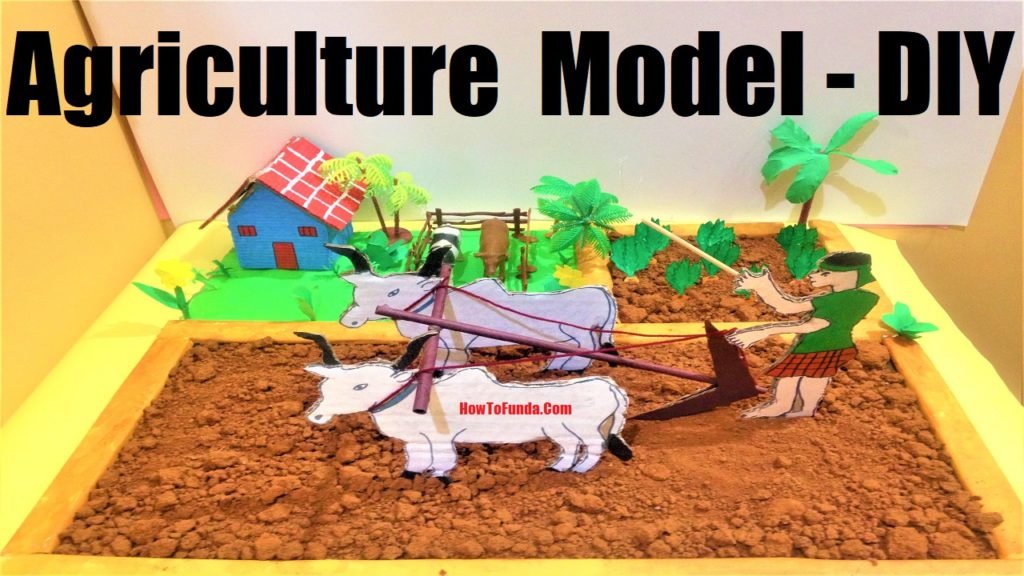
INTRODUCTION
In this topic, we are going to show you how to make the Agriculture or Organic farming model, where you can showcase the way we do organic farming in your science project or exhibitions.
History of organic farming
Organic farming originated in the 20th century but it is not new it was doing from ancient times
Scientific knowledge of ecology and some modern technology with traditional farming practices are both combined in organic farming based on naturally occurring biological processes.
What is Organic Farming and how to do?
Organic farming is a type of farming, it basically uses fertilizers of organic origin such as bone meal, green manure, and compost manure.
It implements techniques such as crop rotation, companion planting.
Here mixed cropping, biological pest control and fostering of insect predators are used.
Here naturally occurring substances are used while prohibiting or strictly limiting synthetic substances.
As per the United States Department of Agriculture (USDA), organic farming prohibits genetically modified organisms, plant growth regulators, nanomaterials, hormones, and antibiotic use
Organic food and the organic product has gained momentum and has reached $63 billion worldwide in 2012.
The first modern system of agriculture to focus exclusively on organic methods is Biodynamic agriculture.
Organic pesticides
Organic farmers don’t use regular synthetic pesticides, instead, use natural pesticide called pyrethrin, which is the source of Chrysanthemum flower.
Types or Methods of organic farming
Pure organic farming
In pure organic farming, farmers use the organic manures, biopesticides such as pyrethrin
Integrated organic farming
Apart from regular organic farming, you will also look into nutrition management and pest management
Objectives of organic farming
The main objective is to conserve the environments, ecosystem balancing (such as soil fertility, maintaining the natural resources) so that avoiding the pollutions and toxins in the environment
Importance or Benefits of organic farming
- Reduces the production cost(since they do not use the expensive fertilizers and pesticides)
- Farmers use a number of traditional farm tools to farming and minimize their reliance on fossil fuels.
- It is an integrated farming system that strives for sustainability and helps in the enhancement of fertility of the soil and biological diversity.
- autonomy/independence
- self-sufficiency
- openness
- food security
- health
- food safety
Disadvantage of organic farming
- Production costs are higher
- Lack of Marketing and distribution channels
- Cannot produce higher amounts in organic
How does organic farming help the environment
Organic farming reduces the non-renewable energy for producing agrochemical the uses of fossil fuels
Organic farming reduces the greenhouse effect and global warming due to air pollution and climate change Air and climate change.
Step by Step Video on Agriculture model(Organic Farming)
In this video, we will show you the following steps and items that can be used to build an Agriculture model at home by taking help freely from your parents.
Materials Used to Make Organic farming models
- White and Color Chart Paper
- Plastic animals
- Mud
- Color Paints
- Card Board
- Sketch Pen
- Pencil
- Paintbrush
- Hot Glue Gun
- Fevicol
- Stick
- Thread
- Plastic trees and fence
- Waste Boxes to get cardboard
- Scissor to Cut
Questions & Answers on organic farming
- What is meant by organic farming?
Crop and livestock production that provide attentive care that promotes health and meets the behavioral needs of livestock. - What are the different types of organic farming?
Pure and Integrated are two different types of organic farming. - What are the benefits of organic farming?
It reduces soil erosion, reduces pollution, conserves water, increases soil fertility and uses less energy. - What are the good things about organic farming?
Various benefits of the environment include reduced pesticides and chemicals, build healthy soil, reduce erosion and global warming, water conservation, and water health. - Why should we do organic farming?
In this farming method, we grow nurturing crops without the use of synthetic based fertilizers and pesticides.
Conclusions
Organic farming helps us to lead a healthy and better lifestyle due to the consumption of organically grown food products which are free from harmful chemicals and fertilizers. The whole life cycle for organic farming can be explained using the agricultural models

